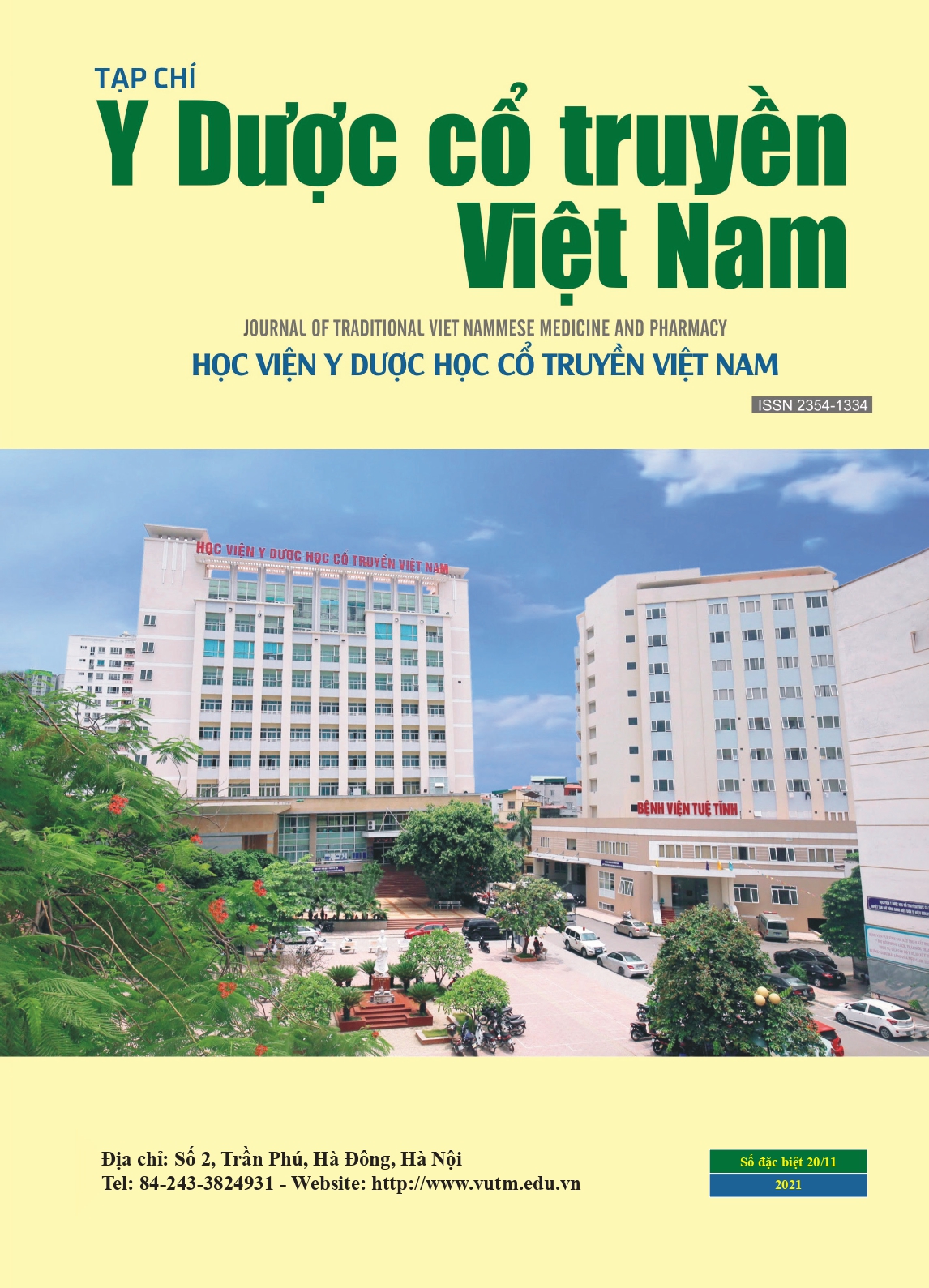Study on mosquitoes repellent effect of basil oil (ocimum basilicum l. lamiaceae) in experimental animals
Main Article Content
Abstract
This study was conducted between June and August, 2021 at Institute of Natural Products Chemistry and National Institute of Malariology, Parasitology and Entomology, Hanoi, Vietnam.
Objective: To test repellent effect of basil oil (Ocimum basilicum L. Lamiaceae) on Aedes aegypti, Anopheles minimus and Culex tritaeniorhynchus mosquitoes in experimental animals..
Methods: Repellent effect of basil oil on three different mosquitoe species were assessed according to WHO method in Guinea pigs. Total of 900 mosquitoes of each species were selected and divided in 9 groups, in which each group had 100 mosquitoes. Three groups were considered as the control ones that were kept respectively in a tunnel with blank nets. Three others were caged in turn at the same tunnel with the net which had been soaked in the pure basil oil while the rest were confined in the tunnel in succession with the net dipped into the combination of basil oil – ethanol 700 (7:3). Then, the rates of dead mosquitoes and sucking blood inhibition were evaluated after exposing 15 hours to basil oil-sample nets.
Results: The pure basil oil and the combination of basil oil - ethanol 700 (7:3) revealed high repellent effects on three tested mosquitoe species with the average repellent rates of 99.99% and 99,98% on Aedes aegypti, 99.33% and 99.35% on Anopheles minimus, 99.96% and 99.90% on Culex tritaeniorhynchus, respectively.
Article Details
Keywords
Basil, Ocimum basilicum L. Lamiaceae, Aedes aegypti, Anopheles minimus, Culex tritaeniorhynchus, mosquito, water extract, repellent effect, rate of dead mosquitoes, rate of sucking blood inhibtion.
References
2. Kiplang’at K.P., Mwangi R.W (2013), “Repellent activities of Ocimum basilicum, Azadirachta indica and Eucalyptus citriodora extracts on rabbit skin against Aedes aegypti”, Journal of Entomology and Zoology Studies, 1 (5): 84-91.
3. Opalchenova G., Obreshkova D. (2003), “Comparative studies on the activity of basil - an essential oil from Ocimum basilicum L. - against multidrug resistant clinical isolates of the of genera Staphylococcus, Enterococcus, and Pseudomonas by using different test methods”, Journal of Microbiological methods, Volume 54, Issue 1, p. 105-110.
4. Science direct (2019), “Mosquito – an overview”, Science direct, 12 pages.
5. Science direct (2019), “Basil – an overview”, Science direct, 14 pages.
6. Sritabutra D., Soonwera M. (2013), “Repellent activity of herbal essential oils against Aedes aegypti (Linn.) and Culex quinquefasciatus (Say.)”, Asian Pacific Journal of Tropical Disease, 3(4): 271-276.
7. WHO (2013), Guidelines for testing mosquito adulticides for indoor residual spraying and treatment of mosquito nets. WHO/CDS/NTD/WHOPES/ GCDPP/2013.1.

